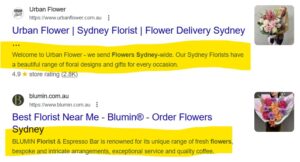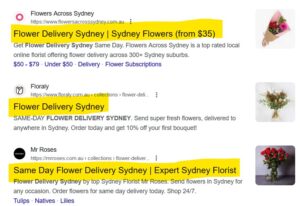Home » Creating Back Links
How to Create Backlinks: A Comprehensive Guide to Boosting Your SEO
 Backlinks are an essential aspect of search engine optimisation (SEO) that can significantly impact your website’s authority, visibility, and ranking in search engine results. A backlink is a link from one website to another, serving as a vote of confidence for the content it references. High-quality backlinks can enhance your site’s credibility and help attract more organic traffic. In this article, we’ll explore effective strategies for creating backlinks to boost your SEO efforts.
Backlinks are an essential aspect of search engine optimisation (SEO) that can significantly impact your website’s authority, visibility, and ranking in search engine results. A backlink is a link from one website to another, serving as a vote of confidence for the content it references. High-quality backlinks can enhance your site’s credibility and help attract more organic traffic. In this article, we’ll explore effective strategies for creating backlinks to boost your SEO efforts.
SEM Rush Listing Management tool is very helpful with creating quality back links for your website. Listing your business into as many as 40 of Australia’s highest domain authority directories, such as Google Business, Bing, Yelp and many more.
1. Create High-Quality, Shareable Content
The foundation of effective backlinking is producing high-quality content that others want to link to. To achieve this:
-
Research and Write Informative Articles: Focus on topics that are relevant to your audience and provide in-depth information. Well-researched articles, how-to guides, and industry insights are likely to attract attention.
-
Use Visual Content: Infographics, charts, and videos are more likely to be shared and linked to than plain text. Ensure your visuals are well-designed and provide valuable information.
-
Conduct Original Research: Original studies or surveys can provide unique insights that others in your industry will want to reference, resulting in valuable backlinks.
2. Guest Blogging
Guest blogging involves writing articles for other websites in exchange for a backlink to your site. Here’s how to do it effectively:
-
Identify Relevant Blogs: Look for reputable blogs in your niche that accept guest posts. Ensure they have a good domain authority and a relevant audience.
-
Pitch Unique Ideas: When reaching out to these blogs, propose unique content ideas that align with their audience’s interests. Tailor your pitch to demonstrate the value you can provide.
-
Include a Backlink: In your guest post, include a relevant link back to your site within the content or in your author bio. Make sure the link is contextual and enhances the article.
3. Leverage Social Media
Social media platforms can be powerful tools for promoting your content and generating backlinks:
-
Share Your Content: Promote your blog posts, articles, and infographics across your social media channels. Engage with your audience to encourage sharing and linking.
-
Join Relevant Groups: Participate in industry-related groups and forums on platforms like Facebook, LinkedIn, or Reddit. Share your expertise and include links to your content when appropriate.
-
Engage with Influencers: Connect with influencers in your niche. By sharing their content and engaging with their posts, you may increase your chances of getting noticed and linked back to.
4. Utilise Online Directories and Listings
Submitting your website to reputable online directories can enhance your visibility and help you earn backlinks:
-
Find Relevant Directories: Look for directories that are specific to your industry or local area. Ensure that they have a good reputation and authority.
-
Complete Your Profile: When submitting your website, ensure that your profile is complete with relevant information and links to your website.
-
List Your Business: If applicable, register your business on platforms like Google My Business, Yelp, and other local business directories, which can provide backlinks and improve local SEO.
5. Create Resource Pages and Tools
Developing resource pages or tools that provide value can attract backlinks naturally:
-
Compile Useful Resources: Create a comprehensive list of resources, tools, or references in your niche. This can include guides, articles, or external links that provide value to your audience.
-
Develop Useful Tools: If feasible, create tools (like calculators, templates, or checklists) that your audience can use. These tools can be highly shareable and attract backlinks from other sites referencing your tool.
6. Monitor Competitors’ Backlinks
Analysing your competitors’ backlink profiles can provide valuable insights into potential linking opportunities:
-
Use SEO Tools: Tools like Ahrefs, SEMrush, or Moz can help you analyse where your competitors are earning their backlinks.
-
Identify Linking Sites: Look for sites that link to your competitors and consider reaching out to them. You can pitch similar content or provide additional value to earn a backlink.
7. Engage in Forums and Online Communities
Participating in relevant forums and online communities can help you build relationships and earn backlinks:
-
Provide Valuable Contributions: Engage in discussions, answer questions, and share your expertise. When appropriate, link back to your content as a reference.
-
Avoid Spammy Links: Ensure that your links are relevant and add value to the discussion. Avoid being overly promotional, as this can lead to being flagged as spam.
Conclusion
Creating backlinks is a crucial part of any successful SEO strategy. By focusing on high-quality content, leveraging guest blogging, engaging on social media, and utilising various online platforms, you can build a robust backlink profile that enhances your website’s authority and visibility. Remember, the goal is to create valuable, shareable content that naturally attracts links while fostering relationships within your industry. With time and effort, your backlinking strategy can lead to improved search engine rankings and increased organic traffic.
Our Local SEO Packages take care of back linking for your business. We will list your business into up to 40 of Australia’s largest online directories.




